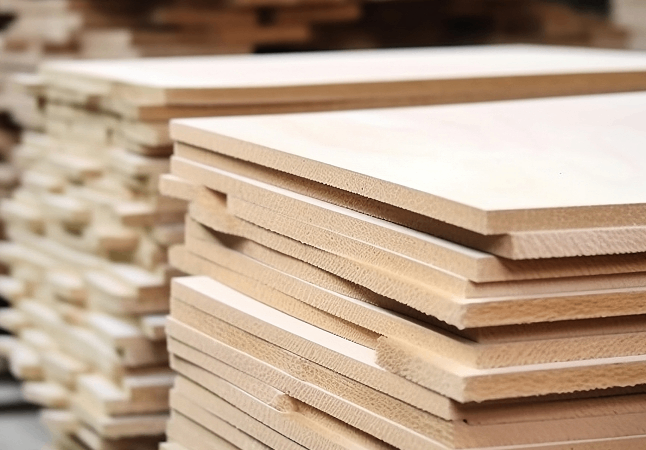In today's wave of globalization, the plywood industry, as a crucial part in the field of building materials, shows vigorous development vitality. For foreign enterprises, choosing to invest in and build plywood factories in China holds numerous unique advantages.
Image Source:699pic
China, as the world's largest producer and exporter of plywood, possesses an unparalleled industrial cluster advantage. After years of intensive cultivation, a complete industrial chain has been established here, ranging from raw material supply, production and processing to export trade. From the convenient transportation of timber from vast forest resource areas, to numerous modern plywood production factories, and then to an efficient foreign trade logistics network, all links are closely connected and operate in coordination, laying a solid foundation for large-scale and efficient production of plywood. If a foreign enterprise settles in China, it can immediately integrate into this mature ecosystem, establish close cooperation with upstream and downstream enterprises, significantly reduce raw material procurement costs and product circulation time, and seize market opportunities.
Technology and talent resources are also highlights attracting foreign investment. During the long-term development process, China's plywood industry has accumulated rich production technology experience, covering everything from traditional exquisite crafts to the application of cutting-edge innovative technologies. Whether it is the technology to improve the bonding strength of plywood or the process to optimize the moisture-proof and fire-proof properties of the board, there are mature cases for reference. Meanwhile, a large number of professional and technical talents have gathered here. Relevant majors in universities continuously supply fresh blood, and experienced master workers in factories can also teach practical skills hand by hand. After foreign enterprises invest in building factories, they can quickly recruit suitable talent teams, easily break through the talent bottlenecks in technology research and development and production operations, and accelerate the establishment and growth of enterprises.
The market potential is even more remarkable. China is not only a major exporter of plywood, but its domestic market is also huge and has diverse demands. With the steady progress of urbanization, industries such as building decoration and furniture manufacturing are booming, and the demand for plywood continues to rise. From the exquisite decoration of high-end residences to the basic construction of affordable apartments; from the customized furniture of large office spaces to the display cabinets of small shops, plywood is widely used. By setting up factories in China, foreign enterprises can get close to the local market, gain real-time insights into changes in consumer demands, accurately research and develop and produce suitable products, and also take advantage of China's complete logistics and sales systems to quickly promote products to every corner of the country, achieving both domestic and foreign sales and expanding profit margins.
In terms of policy support, the Chinese government has spared no effort to attract foreign investment and promote industrial upgrading. For foreign-invested enterprises in manufacturing fields such as plywood, it provides many favorable policies such as tax preferences and land use convenience. At a time when environmental protection requirements are becoming increasingly strict and industrial upgrading is urgent, the government also actively guides enterprises to transform towards green and sustainable directions, providing special support such as subsidies for technological transformation and subsidies for the purchase of environmental protection equipment to help enterprises meet environmental challenges, reduce operating costs, and achieve long-term development under the premise of compliance.
Furthermore, China's stable social environment and complete infrastructure give enterprises an "assurance" for their operations. The stable political situation and sound laws and regulations guarantee the security of enterprise investment and the legality of their rights and interests. The extensive transportation network ensures the smooth transportation of raw materials and finished products, the reliable energy supply system meets the uninterrupted production needs of factories, and the high-speed network communication facilitates enterprises' digital management and connection with the global plywood market.
To sum up, foreign enterprises investing in plywood factories in China are like embarking on a development path full of opportunities. They can rely on complete industrial clusters and abundant technical talent reserves to quickly start production and operation, achieve profit growth and continuous upgrading by virtue of broad market potential and strong policy support, and also take root and develop in the long term under the guarantee of a stable social environment and high-quality infrastructure. It is undoubtedly a wise and promising strategic choice.



